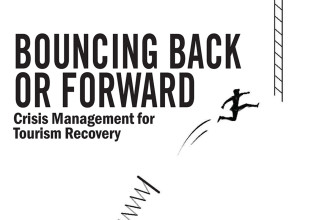
The National Assembly passed two bills - The Commission for the Investigation of Abuse of Authority (Third Amendment) Bill and Prevention of Corruption (First Amendment) Bill on April 11 proposing to bring private businesses, particularly banks and financial institutions, under the scope of the anti-corruption body which were hitherto not under its ambit.
The move by the Upper House has partly addressed the long-standing demand of the commission for a wider jurisdiction including powers to investigate private sector corruption. But the private sector has long been opposing such a provision claiming it will affect investment decisions of the private sector and discourage it. The private sector holds that if private businesses are brought under the CIAA scanner, it will discourage domestic as well as foreign investment in the country.
Apart from defining fully or partially owned public agencies as public institutions, the two bills state that public institutions also mean banks, financial institutions, insurance firms, medical colleges, hospitals affiliated to medical colleges, other colleges, public limited companies, government-funded bodies or projects or any organisation designated as a public institution by the government by notification in the Nepal Gazette.
In this edition of Business 360, we spoke to some members of the private sector to get their views on the issue. Here is what they had to say.
 My view on these two bills is that I don’t think it is helping the government or the private sector at the moment. Instead of coming up with these bills in a situation where the country is facing a financial crisis, I think we should focus more on policies related to foreign direct investment, information technology, labour laws, etc. The growth of the economy is when the private sector and foreign investment are safe. Nepal already ranks somewhere at the top among the least investable countries in the world because of its political instability and this move will make it worse. We might question what is the problem in this if everything is transparent and not corrupt but I personally think the private sector is a victim of corruption, if we are a part of the corruption, it’s only because the system is demanding it at times.
The growth of the economy is when the private sector and foreign investment are safe. Nepal already ranks somewhere at the top among the least investable countries in the world because of its political instability and this move will make it worse. We might question what is the problem in this if everything is transparent and not corrupt but I personally think the private sector is a victim of corruption, if we are a part of the corruption, it’s only because the system is demanding it at times.
Before anything else, I think the CIAA needs to keep an eye on political parties, government offices, public institutions and all tender-related work. Burdening the commission with more responsibility will not be a good decision as there are plenty of cases already pending for more than a decade. Shifting focus from that to the private sector might just open doors for more corruption. We understand it is important for the government to safeguard the public’s money and their interests but there are respective regulating bodies which look after the banks, insurance companies, microfinance firms and it will be unfair on them too. The private sector institutions which have public interests and investments can be scrutinised by these bodies and then, if any further issues arise, it can be reported to the CIAA.
I think the government needs to come up with stronger policies and everything else will fall in place in terms of corruption. The long-term vision has to be clear while making any decision whether it is related to licensing, tenders or anything else. We don’t want a situation where licences are distributed in bulk and then you are forced to merge the entities without your will. I believe that stronger policies, visionary leadership and love for the nation are what is required to fix the corruption in our country.
My view on these two bills is that I don’t think it is helping the government or the private sector at the moment. Instead of coming up with these bills in a situation where the country is facing a financial crisis, I think we should focus more on policies related to foreign direct investment, information technology, labour laws, etc. The growth of the economy is when the private sector and foreign investment are safe. Nepal already ranks somewhere at the top among the least investable countries in the world because of its political instability and this move will make it worse. We might question what is the problem in this if everything is transparent and not corrupt but I personally think the private sector is a victim of corruption, if we are a part of the corruption, it’s only because the system is demanding it at times.
The growth of the economy is when the private sector and foreign investment are safe. Nepal already ranks somewhere at the top among the least investable countries in the world because of its political instability and this move will make it worse. We might question what is the problem in this if everything is transparent and not corrupt but I personally think the private sector is a victim of corruption, if we are a part of the corruption, it’s only because the system is demanding it at times.
Before anything else, I think the CIAA needs to keep an eye on political parties, government offices, public institutions and all tender-related work. Burdening the commission with more responsibility will not be a good decision as there are plenty of cases already pending for more than a decade. Shifting focus from that to the private sector might just open doors for more corruption. We understand it is important for the government to safeguard the public’s money and their interests but there are respective regulating bodies which look after the banks, insurance companies, microfinance firms and it will be unfair on them too. The private sector institutions which have public interests and investments can be scrutinised by these bodies and then, if any further issues arise, it can be reported to the CIAA.
I think the government needs to come up with stronger policies and everything else will fall in place in terms of corruption. The long-term vision has to be clear while making any decision whether it is related to licensing, tenders or anything else. We don’t want a situation where licences are distributed in bulk and then you are forced to merge the entities without your will. I believe that stronger policies, visionary leadership and love for the nation are what is required to fix the corruption in our country.
 The CIAA was originally formed to investigate companies, banks, or committees fully or partly owned or controlled by the Government of Nepal. The recent amendments to its jurisdiction now grant the body direct access to corruption cases in the private sector including banks and financial institutions in Nepal. The move has received mixed reviews while the private sector including the Federation of Nepalese Chambers of Commerce and Industry (FNCCI), Confederation of Nepalese Industries (CNI) and others have expressed their dissatisfaction over the move.
As a professional, for me, other than right and wrong, we also need to factor in its relevance in a country like Nepal. The banking industry over the last four decades has emerged as a highly regulated and compliant industry supporting the growth of the nation’s economy along the way. All private organisations come under the purview of their respective authorities and the banking sector in particular is being fully supervised and regulated by Nepal Rastra Bank. There is Bank and Financial Institution Act (BAFIA) in place as a legal framework for the issues related to banking.
In order to maintain ethical practices, promote efficiency, consistency, effectiveness, accountability, simplification, ease of compliance, and promote the growth of the banking sector, it is essential that Nepal Rastra Bank maintains the primary regulatory authority in the banking industry. Multiple regulatory bodies can create confusion and uncertainty, which can have a negative impact on the growth of the banking industry and it will ultimately be detrimental to the overall growth of the private sector.
The country is passing through its worst economic crisis in history and has already slipped down in the Ease of Doing Business Index in recent times. As such the need of the hour is to boost private sector confidence and investment and this bill will certainly not help the case.
Therefore, direct involvement in the banking sector by CIAA or any other body except Nepal Rastra Bank should be avoided. Our central bank is very well-equipped, proactive and focused on ensuring healthy practices in the banking industry. It needs to be noted that NRB has also collaborated with CIAA and Nepal Police to investigate and prosecute cases of corruption and other financial crimes in the banking sector as and when required. So, the liasoning already exists and direct intervention of CIAA is not necessary. Another issue is the timing of this bill. Even if we keep a close eye on its relevance this is not the right time to even be discussing it. The country is passing through its worst economic crisis in history and has already slipped down in the Ease of Doing Business Index in recent times. As such the need of the hour is to boost private sector confidence and investment and this bill will certainly not help the case.
The CIAA was originally formed to investigate companies, banks, or committees fully or partly owned or controlled by the Government of Nepal. The recent amendments to its jurisdiction now grant the body direct access to corruption cases in the private sector including banks and financial institutions in Nepal. The move has received mixed reviews while the private sector including the Federation of Nepalese Chambers of Commerce and Industry (FNCCI), Confederation of Nepalese Industries (CNI) and others have expressed their dissatisfaction over the move.
As a professional, for me, other than right and wrong, we also need to factor in its relevance in a country like Nepal. The banking industry over the last four decades has emerged as a highly regulated and compliant industry supporting the growth of the nation’s economy along the way. All private organisations come under the purview of their respective authorities and the banking sector in particular is being fully supervised and regulated by Nepal Rastra Bank. There is Bank and Financial Institution Act (BAFIA) in place as a legal framework for the issues related to banking.
In order to maintain ethical practices, promote efficiency, consistency, effectiveness, accountability, simplification, ease of compliance, and promote the growth of the banking sector, it is essential that Nepal Rastra Bank maintains the primary regulatory authority in the banking industry. Multiple regulatory bodies can create confusion and uncertainty, which can have a negative impact on the growth of the banking industry and it will ultimately be detrimental to the overall growth of the private sector.
The country is passing through its worst economic crisis in history and has already slipped down in the Ease of Doing Business Index in recent times. As such the need of the hour is to boost private sector confidence and investment and this bill will certainly not help the case.
Therefore, direct involvement in the banking sector by CIAA or any other body except Nepal Rastra Bank should be avoided. Our central bank is very well-equipped, proactive and focused on ensuring healthy practices in the banking industry. It needs to be noted that NRB has also collaborated with CIAA and Nepal Police to investigate and prosecute cases of corruption and other financial crimes in the banking sector as and when required. So, the liasoning already exists and direct intervention of CIAA is not necessary. Another issue is the timing of this bill. Even if we keep a close eye on its relevance this is not the right time to even be discussing it. The country is passing through its worst economic crisis in history and has already slipped down in the Ease of Doing Business Index in recent times. As such the need of the hour is to boost private sector confidence and investment and this bill will certainly not help the case.
 The private sector has a strong perspective and believes that the current bill related to CIAA is not needed nor relevant in the current scenario. As of today in Nepal, there are many authorities and regulatory bodies which work relentlessly to neutralise the private sector and look into cases of corruption with strict audit bodies, rules and regulations and much more. I and the whole community of private bodies believe that such an amendment should not be passed.
Meanwhile, when the government passes bills as such it decreases the morale of the businesses and whenever we hear about the jurisdiction role in any sector, let that be good or bad, there is lack of productivity. If this Act does get implemented in the private sector, it will decrease confidence and productivity as well. It will also contribute to creating a fear cycle. A country which has many rule-making bodies creates numerous obstacles for business to grow and expand and automatically hampers the economic growth of the country. The other area that the bill will have an adverse effect on is foreign direct investment (FDI) as FDI is solely focused on doing business. Having the government involved will hamper investments as it could be a hassle to deal and answer every move of the investment.
A country which has many rule-making bodies creates numerous obstacles for business to grow and expand and automatically hampers the economic growth of the country. The other area that the bill will have an adverse effect on is foreign direct investment (FDI) as FDI is solely focused on doing business. Having the government involved will hamper investments as it could be a hassle to deal and answer every move of the investment.
There are many companies, businesses and startups that are recently being acknowledged and are rising in number which is a good scenario for economic growth but on the contrary, it is difficult to even register a company with all the procedures. If the bill is implemented, people will find it challenging and burdensome to report and go through additional processes to sustain their business which directly or indirectly will decrease productivity in the country.
READ ALSO:
The private sector has a strong perspective and believes that the current bill related to CIAA is not needed nor relevant in the current scenario. As of today in Nepal, there are many authorities and regulatory bodies which work relentlessly to neutralise the private sector and look into cases of corruption with strict audit bodies, rules and regulations and much more. I and the whole community of private bodies believe that such an amendment should not be passed.
Meanwhile, when the government passes bills as such it decreases the morale of the businesses and whenever we hear about the jurisdiction role in any sector, let that be good or bad, there is lack of productivity. If this Act does get implemented in the private sector, it will decrease confidence and productivity as well. It will also contribute to creating a fear cycle. A country which has many rule-making bodies creates numerous obstacles for business to grow and expand and automatically hampers the economic growth of the country. The other area that the bill will have an adverse effect on is foreign direct investment (FDI) as FDI is solely focused on doing business. Having the government involved will hamper investments as it could be a hassle to deal and answer every move of the investment.
A country which has many rule-making bodies creates numerous obstacles for business to grow and expand and automatically hampers the economic growth of the country. The other area that the bill will have an adverse effect on is foreign direct investment (FDI) as FDI is solely focused on doing business. Having the government involved will hamper investments as it could be a hassle to deal and answer every move of the investment.
There are many companies, businesses and startups that are recently being acknowledged and are rising in number which is a good scenario for economic growth but on the contrary, it is difficult to even register a company with all the procedures. If the bill is implemented, people will find it challenging and burdensome to report and go through additional processes to sustain their business which directly or indirectly will decrease productivity in the country.
READ ALSO:
Chirag Goyal
Executive Director, Goyal Group
President, Nepalese Young Entrepreneurs’ Forum (NYEF) Kathmandu
 My view on these two bills is that I don’t think it is helping the government or the private sector at the moment. Instead of coming up with these bills in a situation where the country is facing a financial crisis, I think we should focus more on policies related to foreign direct investment, information technology, labour laws, etc. The growth of the economy is when the private sector and foreign investment are safe. Nepal already ranks somewhere at the top among the least investable countries in the world because of its political instability and this move will make it worse. We might question what is the problem in this if everything is transparent and not corrupt but I personally think the private sector is a victim of corruption, if we are a part of the corruption, it’s only because the system is demanding it at times.
The growth of the economy is when the private sector and foreign investment are safe. Nepal already ranks somewhere at the top among the least investable countries in the world because of its political instability and this move will make it worse. We might question what is the problem in this if everything is transparent and not corrupt but I personally think the private sector is a victim of corruption, if we are a part of the corruption, it’s only because the system is demanding it at times.
Before anything else, I think the CIAA needs to keep an eye on political parties, government offices, public institutions and all tender-related work. Burdening the commission with more responsibility will not be a good decision as there are plenty of cases already pending for more than a decade. Shifting focus from that to the private sector might just open doors for more corruption. We understand it is important for the government to safeguard the public’s money and their interests but there are respective regulating bodies which look after the banks, insurance companies, microfinance firms and it will be unfair on them too. The private sector institutions which have public interests and investments can be scrutinised by these bodies and then, if any further issues arise, it can be reported to the CIAA.
I think the government needs to come up with stronger policies and everything else will fall in place in terms of corruption. The long-term vision has to be clear while making any decision whether it is related to licensing, tenders or anything else. We don’t want a situation where licences are distributed in bulk and then you are forced to merge the entities without your will. I believe that stronger policies, visionary leadership and love for the nation are what is required to fix the corruption in our country.
My view on these two bills is that I don’t think it is helping the government or the private sector at the moment. Instead of coming up with these bills in a situation where the country is facing a financial crisis, I think we should focus more on policies related to foreign direct investment, information technology, labour laws, etc. The growth of the economy is when the private sector and foreign investment are safe. Nepal already ranks somewhere at the top among the least investable countries in the world because of its political instability and this move will make it worse. We might question what is the problem in this if everything is transparent and not corrupt but I personally think the private sector is a victim of corruption, if we are a part of the corruption, it’s only because the system is demanding it at times.
The growth of the economy is when the private sector and foreign investment are safe. Nepal already ranks somewhere at the top among the least investable countries in the world because of its political instability and this move will make it worse. We might question what is the problem in this if everything is transparent and not corrupt but I personally think the private sector is a victim of corruption, if we are a part of the corruption, it’s only because the system is demanding it at times.
Before anything else, I think the CIAA needs to keep an eye on political parties, government offices, public institutions and all tender-related work. Burdening the commission with more responsibility will not be a good decision as there are plenty of cases already pending for more than a decade. Shifting focus from that to the private sector might just open doors for more corruption. We understand it is important for the government to safeguard the public’s money and their interests but there are respective regulating bodies which look after the banks, insurance companies, microfinance firms and it will be unfair on them too. The private sector institutions which have public interests and investments can be scrutinised by these bodies and then, if any further issues arise, it can be reported to the CIAA.
I think the government needs to come up with stronger policies and everything else will fall in place in terms of corruption. The long-term vision has to be clear while making any decision whether it is related to licensing, tenders or anything else. We don’t want a situation where licences are distributed in bulk and then you are forced to merge the entities without your will. I believe that stronger policies, visionary leadership and love for the nation are what is required to fix the corruption in our country.
Prasidha Raj Aryal
Deputy General Manager, Machhapuchchhre Bank
 The CIAA was originally formed to investigate companies, banks, or committees fully or partly owned or controlled by the Government of Nepal. The recent amendments to its jurisdiction now grant the body direct access to corruption cases in the private sector including banks and financial institutions in Nepal. The move has received mixed reviews while the private sector including the Federation of Nepalese Chambers of Commerce and Industry (FNCCI), Confederation of Nepalese Industries (CNI) and others have expressed their dissatisfaction over the move.
As a professional, for me, other than right and wrong, we also need to factor in its relevance in a country like Nepal. The banking industry over the last four decades has emerged as a highly regulated and compliant industry supporting the growth of the nation’s economy along the way. All private organisations come under the purview of their respective authorities and the banking sector in particular is being fully supervised and regulated by Nepal Rastra Bank. There is Bank and Financial Institution Act (BAFIA) in place as a legal framework for the issues related to banking.
In order to maintain ethical practices, promote efficiency, consistency, effectiveness, accountability, simplification, ease of compliance, and promote the growth of the banking sector, it is essential that Nepal Rastra Bank maintains the primary regulatory authority in the banking industry. Multiple regulatory bodies can create confusion and uncertainty, which can have a negative impact on the growth of the banking industry and it will ultimately be detrimental to the overall growth of the private sector.
The country is passing through its worst economic crisis in history and has already slipped down in the Ease of Doing Business Index in recent times. As such the need of the hour is to boost private sector confidence and investment and this bill will certainly not help the case.
Therefore, direct involvement in the banking sector by CIAA or any other body except Nepal Rastra Bank should be avoided. Our central bank is very well-equipped, proactive and focused on ensuring healthy practices in the banking industry. It needs to be noted that NRB has also collaborated with CIAA and Nepal Police to investigate and prosecute cases of corruption and other financial crimes in the banking sector as and when required. So, the liasoning already exists and direct intervention of CIAA is not necessary. Another issue is the timing of this bill. Even if we keep a close eye on its relevance this is not the right time to even be discussing it. The country is passing through its worst economic crisis in history and has already slipped down in the Ease of Doing Business Index in recent times. As such the need of the hour is to boost private sector confidence and investment and this bill will certainly not help the case.
The CIAA was originally formed to investigate companies, banks, or committees fully or partly owned or controlled by the Government of Nepal. The recent amendments to its jurisdiction now grant the body direct access to corruption cases in the private sector including banks and financial institutions in Nepal. The move has received mixed reviews while the private sector including the Federation of Nepalese Chambers of Commerce and Industry (FNCCI), Confederation of Nepalese Industries (CNI) and others have expressed their dissatisfaction over the move.
As a professional, for me, other than right and wrong, we also need to factor in its relevance in a country like Nepal. The banking industry over the last four decades has emerged as a highly regulated and compliant industry supporting the growth of the nation’s economy along the way. All private organisations come under the purview of their respective authorities and the banking sector in particular is being fully supervised and regulated by Nepal Rastra Bank. There is Bank and Financial Institution Act (BAFIA) in place as a legal framework for the issues related to banking.
In order to maintain ethical practices, promote efficiency, consistency, effectiveness, accountability, simplification, ease of compliance, and promote the growth of the banking sector, it is essential that Nepal Rastra Bank maintains the primary regulatory authority in the banking industry. Multiple regulatory bodies can create confusion and uncertainty, which can have a negative impact on the growth of the banking industry and it will ultimately be detrimental to the overall growth of the private sector.
The country is passing through its worst economic crisis in history and has already slipped down in the Ease of Doing Business Index in recent times. As such the need of the hour is to boost private sector confidence and investment and this bill will certainly not help the case.
Therefore, direct involvement in the banking sector by CIAA or any other body except Nepal Rastra Bank should be avoided. Our central bank is very well-equipped, proactive and focused on ensuring healthy practices in the banking industry. It needs to be noted that NRB has also collaborated with CIAA and Nepal Police to investigate and prosecute cases of corruption and other financial crimes in the banking sector as and when required. So, the liasoning already exists and direct intervention of CIAA is not necessary. Another issue is the timing of this bill. Even if we keep a close eye on its relevance this is not the right time to even be discussing it. The country is passing through its worst economic crisis in history and has already slipped down in the Ease of Doing Business Index in recent times. As such the need of the hour is to boost private sector confidence and investment and this bill will certainly not help the case.
Deepak Raj Joshi
Director General, Confederation of Nepalese Industries
 The private sector has a strong perspective and believes that the current bill related to CIAA is not needed nor relevant in the current scenario. As of today in Nepal, there are many authorities and regulatory bodies which work relentlessly to neutralise the private sector and look into cases of corruption with strict audit bodies, rules and regulations and much more. I and the whole community of private bodies believe that such an amendment should not be passed.
Meanwhile, when the government passes bills as such it decreases the morale of the businesses and whenever we hear about the jurisdiction role in any sector, let that be good or bad, there is lack of productivity. If this Act does get implemented in the private sector, it will decrease confidence and productivity as well. It will also contribute to creating a fear cycle. A country which has many rule-making bodies creates numerous obstacles for business to grow and expand and automatically hampers the economic growth of the country. The other area that the bill will have an adverse effect on is foreign direct investment (FDI) as FDI is solely focused on doing business. Having the government involved will hamper investments as it could be a hassle to deal and answer every move of the investment.
A country which has many rule-making bodies creates numerous obstacles for business to grow and expand and automatically hampers the economic growth of the country. The other area that the bill will have an adverse effect on is foreign direct investment (FDI) as FDI is solely focused on doing business. Having the government involved will hamper investments as it could be a hassle to deal and answer every move of the investment.
There are many companies, businesses and startups that are recently being acknowledged and are rising in number which is a good scenario for economic growth but on the contrary, it is difficult to even register a company with all the procedures. If the bill is implemented, people will find it challenging and burdensome to report and go through additional processes to sustain their business which directly or indirectly will decrease productivity in the country.
READ ALSO:
The private sector has a strong perspective and believes that the current bill related to CIAA is not needed nor relevant in the current scenario. As of today in Nepal, there are many authorities and regulatory bodies which work relentlessly to neutralise the private sector and look into cases of corruption with strict audit bodies, rules and regulations and much more. I and the whole community of private bodies believe that such an amendment should not be passed.
Meanwhile, when the government passes bills as such it decreases the morale of the businesses and whenever we hear about the jurisdiction role in any sector, let that be good or bad, there is lack of productivity. If this Act does get implemented in the private sector, it will decrease confidence and productivity as well. It will also contribute to creating a fear cycle. A country which has many rule-making bodies creates numerous obstacles for business to grow and expand and automatically hampers the economic growth of the country. The other area that the bill will have an adverse effect on is foreign direct investment (FDI) as FDI is solely focused on doing business. Having the government involved will hamper investments as it could be a hassle to deal and answer every move of the investment.
A country which has many rule-making bodies creates numerous obstacles for business to grow and expand and automatically hampers the economic growth of the country. The other area that the bill will have an adverse effect on is foreign direct investment (FDI) as FDI is solely focused on doing business. Having the government involved will hamper investments as it could be a hassle to deal and answer every move of the investment.
There are many companies, businesses and startups that are recently being acknowledged and are rising in number which is a good scenario for economic growth but on the contrary, it is difficult to even register a company with all the procedures. If the bill is implemented, people will find it challenging and burdensome to report and go through additional processes to sustain their business which directly or indirectly will decrease productivity in the country.
READ ALSO:
Published Date: June 1, 2023, 12:00 am
Post Comment
E-Magazine
RELATED Opinion





